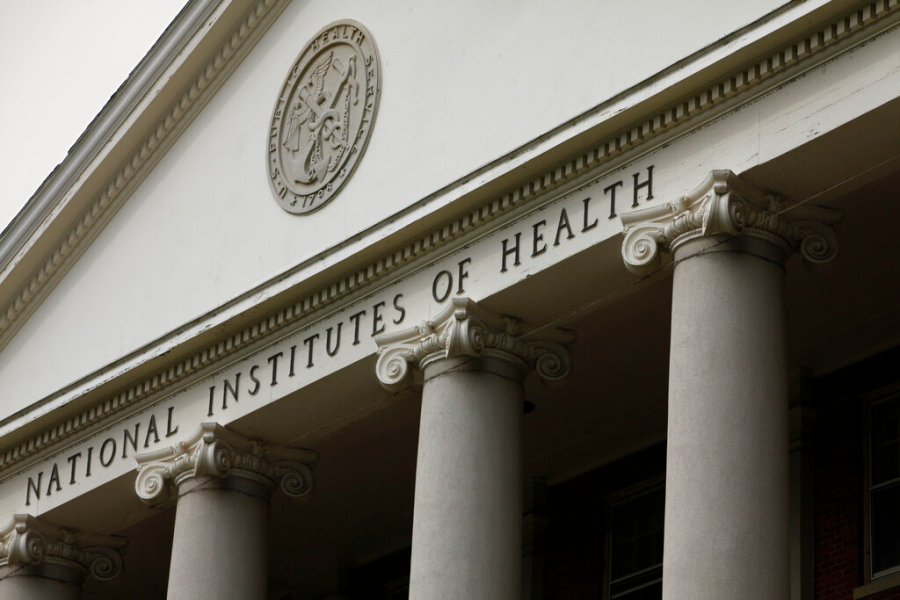
Progressives and media pundits are raising concerns that once in office President-elect Donald Trump will seek revenge against his critics and political opponents. But there are different kinds of revenge, and nominating Dr. Jay Bhattacharya to head the National Institutes of Health (NIH) is the right kind of revenge.
The media have become almost obsessed with what they consider the potential for Trump retribution. Here’s a Politico reporter’s warning: “For years, Trump has peppered his speeches and social media posts with vengeful calls for his political opponents, his critics and members of the media to be prosecuted, locked up, deported and even executed. In the waning weeks of the 2024 campaign, he escalated those promises of retaliation to a fever pitch.”
Do you think “deportations” and “executions” might be hyperbole? Trump had plenty of critics his first term in office, and I can’t recall any of them being executed or deported — or even locked up.
In fact, the only one who’s been politically prosecuted repeatedly by the Justice Department and state and city officials is … Trump.
By nominating Bhattacharya to head the NIH, Trump is taking the high road to revenge: first, by naming an eminently qualified person to head the organization and, second, by replacing the arrogant, believe-our-science elitists running the government’s pandemic response with a person they regularly disparaged.
Bhattacharya’s curriculum vitae (an academic term for resume) is impressive. He’s a Stanford University professor who is both a medical doctor and epidemiologist and has a Ph.D. in economics. His 27-page CV lists 152 peer-reviewed articles, 63 non-peer-reviewed articles, eight books and reports, and 15 book chapters. He has applied for and received multiple research grants from the NIH and knows that institution well.
Perhaps most importantly, he and two other academics — Dr. Martin Kulldorff, then a professor of medicine at Harvard University, and Dr. Sunetra Gupta, an epidemiologist at Oxford University — coauthored the Great Barrington Declaration. Published on Oct. 4, 2020, the document challenged the COVID-19 pandemic guidance coming from the NIH and the Centers for Disease Control and Prevention (CDC).
That document, which now has 940,000 signatures from medical and health policy experts from around the world, argued that Washington and state governments should have taken a less-restrictive approach to the pandemic. They claimed that government-imposed lock downs, forcing employees and children to “shelter in place” and ridiculing anyone who disagreed was an ill-considered overreaction.
The Declaration begins, “As infectious disease epidemiologists and public health scientists we have grave concerns about the damaging physical and mental health impacts of the prevailing COVID-19 policies, and recommend an approach we call Focused Protection.”
Under Focused Protection, “The most compassionate approach that balances the risks and benefits of reaching herd immunity, is to allow those who are at minimal risk of death to live their lives normally to build up immunity to the virus through natural infection, while better protecting those who are at highest risk.”
Questioning the official guidelines led to Bhattacharya’s life being “completely overturned.” He told the Wall Street Journal, “I couldn’t eat or sleep for months.” There were death threats and “some very, very nasty attacks.” Some of his colleagues stopped talking to him and even crossed the street to avoid him.
But it turns out that the Declaration largely got it right, and even some of his harshest critics now grudgingly concede that mistakes were made.
The good news is that Bhattacharya intends to bring important reforms to the NIH and its numerous centers and sub-agencies. He will take a different approach than Dr. Francis Collins, who was the former head of the NIH, and the self-assured, permit-no-dissent Dr. Anthony Fauci, who was the public face of the government’s response to the pandemic. That would be the man who once said those who questioned him were really criticizing science because “I represent science.”
Indeed, it appears Bhattacharya will be the anti-Fauci, which is exactly what the agency — and the country — needs.
It’s hard to overstate how much damage the NIH and CDC’s pandemic response has done to their credibility and the public’s trust. When anyone raised serious questions about the government’s responses, they were dismissed and demeaned as “science deniers.” That goes double for some Democratic politicians, including President Biden and then-House Speaker Nancy Pelosi (D-Calif.).
As Bhattacharya observes, the public now sees “the scientific establishment as essentially an authoritarian power sitting over them, rather than as a force for good.”
Bhattacharya intends to return to the scientific basics of open dialogue, innovation and verification.
So, it’s remarkable that a widely distinguished and unquestionably qualified scientist who was branded as a scientific heretic will now lead, and reform, the institution that demeaned him and others. If this is the kind of “revenge” Trump has in mind, we need more of it.
Merrill Matthews is a public policy and political analyst and the co-author of “On the Edge: America Faces the Entitlements Cliff.” Follow him on X@MerrillMatthews.

